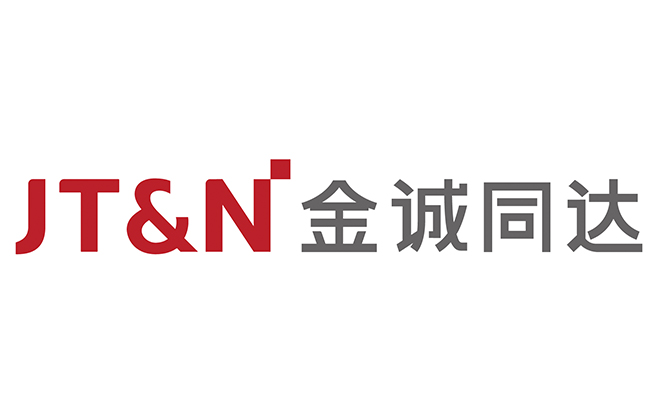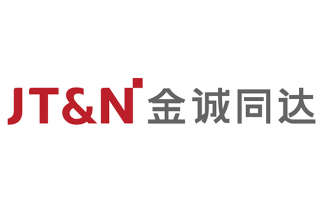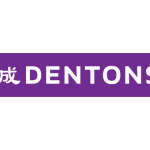1. What are the most frequent tax-related problems (main types) encountered by foreign enterprises/individuals in Mainland China?
1.Chinese tax resident/non-resident identification
2.Tax treaty treatment
3.Transfer pricing
4.Cross-border business tax risks
5.Tax registration administration
6.Double taxation/special tax adjustment
2. Use the most concise and clear language to explain the definition of tax residents and non-residents in China?
Resident individual vs non-resident individual
Individual resident refers to an individual who has domicile in China or who has no domicile and has resided in China for a total of 183 days in a tax year. In addition, others are non-resident individuals.
Resident enterprise vs non-resident enterprise
Resident enterprise refers to an enterprise established within the territory of China or in accordance with the laws of a foreign region, but with its actual management organ within the territory of China.
Non-resident enterprise refers to an enterprise established in accordance with a foreign law and whose actual management organ is not within the territory of China, but which has established an institution or place in the territory of China, or has income derived from the territory of China.
3.Clearly explain China’s tax system in the most concise language?
There are 18 tax categories in five categories in China, which are as follows:
1. Turnover tax (goods and services tax): value-added tax, consumption tax, customs duties.
2. Income tax (income tax): corporate income tax, individual income tax
3. Resource tax: resource tax, urban land use tax, land value-added tax
4. Property tax: property tax, deed tax, vehicle purchase tax, vehicle and vessel use tax
5. Behaviour tax: stamp duty, tobacco tax, environmental tax, ship tonnage tax, farmland occupation tax, urban maintenance and construction tax
4. What time nodes (divided into different types of taxes) should foreign-funded enterprises/individuals pay attention to in mainland China?
1. Individual income tax: the first 15 days of each month. Final settlement of individual income tax comprehensive income: 1 March-30 June 2022.
Personal income tax settlement and settlement: 1 January-31 March 2022
2. VAT: 15 days before January, April, July and October of each quarter for small-scale taxpayers and 15 days before each month for general taxpayers
3. Additional tax: the 15th day before January, April, July and October of each quarter for small-scale taxpayers, and the 15th day before each month for general taxpayers
4. Corporate income tax: Small scale every quarter January, April, July, 15 October
Annual corporate income tax report: 1 January-31 May 2022
Financial statements: 15 days before January, April, July and October of each quarter; Annual statements: 1 January-31 May 2022
5. Stamp duty: 15 days before January, April, July and October of each quarter, or 15 days before each month
5. China’s major preferential tax policies for foreign-funded enterprises/individuals (including foreign-related preferential tax policies in Hainan, Zhuhai Hengqin and other places)
Main preferential policies:
1. Treatment under international tax treaties
2. Equity investment income is exempt from enterprise income tax
3. Tax deferred on the reinvestment of domestic profits by foreign investors
4. Interest income is exempt from enterprise income tax
5. Bond interest is temporarily exempted from enterprise income tax and value-added tax
6. Overseas income credit
Preferential policies for special areas:
1. Preferential individual income tax policies in the Guangdong-Hong Kong-Macau Greater Bay Area: The part of the tax calculated in excess of 15% of the taxable income shall be granted financial subsidies by the government.
2. Preferential individual income tax policy for Hong Kong and Macau residents in Nansha, Guangzhou: The individual income tax burden exceeding the Hong Kong/Macau tax burden will be exempted.
3. Hengqin high-end talents and talents in short supply/Macau residents’ personal income tax preferential policies: The part of the personal income tax burden of high-end talents in short supply will be exempted/The part of the personal income tax burden of Macau residents working in Hengqin Guangdong-Macau In-Depth Cooperation Zone will be exempted.
4. Preferential personal income tax policies for foreign talents in Hainan Free Trade Port at this stage: Before 2025, high-end talents in short supply will be exempted from the actual personal income tax burden of more than 15%.
6. Can you provide guidance on the taxation of international transactions and cross-border investments in China?
China has a complex tax system. For international trade and cross-border investment, the main types of tax to consider are corporation income tax, individual income tax, value-added tax, consumption tax, and tariff. To encourage international trade and cross-border investment, China has introduced a series of tax-incentive policies in the form of tax treaties and regulatory documents. For instance, the income of non-resident corporations may be exempt from corporation income tax or subject to a lower tax rate on certain conditions. Additionally, certain qualified business carried out by foreign invested enterprises could enjoy exemption or reduction to the value-added tax. We highly recommend seeking the advice of tax law experts and proactively designing deal structure and corporate framework in advance to ensure compliance and minimise tax burdens when engaging in international trade and cross-border investment in China.
7. How does China address tax evasion and tax avoidance? What are the penalties for non-compliance?
China has a relatively comprehensive regulatory system for tax avoidance and tax evasion. For example, the corporation Income Tax Law empowers tax authorities with the right to impose special adjustments to tax when the business transactions between a corporation and its affiliates do not comply with the arm’s-length standard, potentially reducing the taxable income of the corporation or its affiliates. When taxpayers avoid paying taxes by illegal measures, such as forging books of account, making false declarations, etc, it may constitute tax evasion. The legal consequences of tax evasion are more serious than those of improper tax avoidance. In addition to paying the unpaid taxes, the tax payer will also bear late fee and fines ranging from 50% to five times the amount of underpaid taxes. Especially for foreign citizens, a tax prosecution can create a major plague that they may be prevented from leaving China. In more serious cases, once accused of tax evasion, individuals may also face criminal charges. The maximum criminal penalty for tax evasion in China is seven years.
8. Are there any specific tax considerations for specific industries or sectors in China?
China has implemented targeted tax policies for certain industries and sectors. For example, to encourage the development of hi-tech industries, a 15% reduced corporation income tax rate for hi-tech enterprises is one of the most widely applicable tax incentives in China. Moreover, advanced manufacturing companies may benefit from policies such as additional calculation and deduction of research and development expenses, as well as refunding of period-end uncredited VAT. China also provides special tax treatment to encourage foreign investors participating in the domestic financial industry. For instance, recently, the Hainan Free Trade Zone, which has attracted widespread attention in recent years, has implemented tax reduction policies for Qualified Foreign Limited Partner (QFLP) entities that meet the specific conditions.
9.Can you explain the tax implications for expatriates working in China, such as residency status, tax treaties, and foreign income reporting?
With the increasing number of foreign citizens employed in China, the issue of tax compliance for foreign employees has gained more attention. The main tax concern for foreign individuals is determining their residence status. Similar to most countries in the world, China adopts a mixed standard to recognise tax residence. For individuals, a person with domicile in China or even if without a domicile, dwelling in China more than 183 days (including) in a tax year, will be recognised as a resident of China. The authority imposes individual income tax on the global income of resident individuals, while only on the income sourced from China of non-resident individuals. Resident individuals are required to disclose their overseas income to tax authority for administrative purposes. It is not only a way for China to exercise its tax residence jurisdiction, but also a pre-requisite for individual residents to enjoy overseas income tax credits. To eliminate double taxation, China has signed over 100 tax treaties and tax arrangements with countries and regions around the world. These agreements play a crucial role in controlling the tax burden on foreign individuals earning income in China.
10.What are the options for resolving tax disputes in China, such as administrative appeals or legal proceedings?
When tax disputes arise between taxpayers and tax authorities, they can be resolved through various channels, including consultation, responding to tax inspection in a rational manner, or filing complaints to the tax service department. Besides that, the most important legal procedures are administrative appeal and litigation. Administrative appeal refers to the right of taxpayers to request a review of specific administrative decisions made by tax authorities by their higher administrative organs, when they are dissatisfied with the decision. The taxpayer is also entitled to initiate a litigation in court if the reconsideration decision of the higher-level tax authority is still unsatisfactory to the taxpayer’s point of view. The litigation process in China follows a ‘final after two trials’ system, which means there are two levels of trial and a final instance. There is a mandatory step of administrative appeal for some tax disputes before they were raised in the court, while others can be directly filed in court. In addition to administrative appeal and litigation, it is more economical and efficient for taxpayers to resolve disputes through consultation or behaving rationally in the early stages of administrative procedures, for example, correctly responding to tax inspections by tax authorities according to legal procedures and timely applying for hearings when tax authorities are going to make administrative penalty decisions. Overall, it is highly recommended to seek the assistance of tax law experts in the initial stages when facing tax authority inspections.
For more information contact

Zhaohui Wang
Senior partner – Corporate formation and compliance, M&A, tax, litigation and arbitration
T: (+86) 138 0137 2920
E: wangzhaohui@jtn.com
Zhaohui Wang graduated from Capital University of Economics and Business in July 1991. He worked in Beijing tax authorities and Deloitte Touche Tohmatsu. Since April 1998, he has been working as a lawyer. Mr Wang has accumulated rich experience from different working experiences, and is good at analysing and handling tax-related dispute cases from different perspectives, providing professional tax legal services for clients. Zhaohui Wang has served successively as secretary-general (6th), Deputy Director (8th) and Director (7th, 9th, 10th and 11th) of the Tax Law Committee of Beijing Lawyers Association since 2002.

Yingchuan Chen
Senior partner – Corporate and tax compliance; investment, financing and trade; dispute settlement
T: (+86) 130 5222 2902
E: chenyingchuan@jtn.com
Yingchuan Chen mainly engaged in corporate and tax compliance (especially export and import tax), investment and financing, trade and dispute resolution and has served many Fortune 500 companies and listed companies. He has participated in a number of national research projects and won a number of national awards. He is now a member of the Fiscal and Taxation Law Research Society of the Chinese Law Society, a member of the Fiscal and Taxation Practice Committee of the Shanghai Bar Association, a practice mentor at Fudan University Law School, and a key recommended lawyer in the field of tax law in the Asia-Pacific region for The Legal 500 (2022). His work highlights include: assisted Alpine Lakes Capital SPC in minimising tax costs, a multi-jurisdictional matter; aided Chi Mei Materials Technology Investment Co. in minimising tax costs; assisting Chunfan Art Film (Shanghai) in completing tax compliance self-examination,etc.

Yuanyuan Xu
Senior lawyer – Corporate formation and compliance, M&A, tax, litigation and arbitration
T: (+86) 138 1012 4922
E: xuyuanyuan@jtn.com
Yuanyuan Xu joined JT&N in 2006 and obtained the lawyer practice qualification in 2011. She has been engaged in tax, corporate, litigation and arbitration for a long time. Ms Xu is familiar with the processing of tax-related cases, providing clients with tax-related business consultation, case analysis and risk assessment, formulating case response strategies, litigation agency and other legal services; providing perennial or special tax legal advisory services for many film and television culture companies or studios, and participating in contract review and modification, contract negotiation, enterprise legal risk control and management and other legal services.

Yujie Liu
Lawyer – Corporate formation and compliance, M&A, tax, litigation and arbitration
T: (+86) 188 6810 8685
E: liuyujie@jtn.com
Yujie Liu graduated from Zhejiang University and The Chinese University of Hong Kong successively. She joined JT&N in 2021 and has the professional qualification of lawyer. Her professional fields include tax, corporate, investment and financing and other legal fields. Lawyer Liu Yujie mainly provides tax-related business consultation, tax-related litigation and other legal services for clients. Our clients include many companies and high-net-worth individuals. In addition, Ms Liu also has extensive experience in general corporate business and investment and financing business. She has participated in several private equity investment projects, including due diligence and the design and production of transaction documents, as well as providing clients with legal consulting and contract review and other daily legal services.

Qiuxuan Lin
Lawyer – Corporate and tax compliance; investment, financing and trade; dispute settlement
T: +8618817676915
E: linqiuxuan@jtn.com
Qiuxuan Lin is mainly engaged in research and legal services in the fields of corporate and tax compliance, investment and financing, trade and dispute settlement, providing clients with tax-related materials preparation, tax-related business consulting, case analysis and risk assessment, and developing strategies for litigation and arbitration cases.














